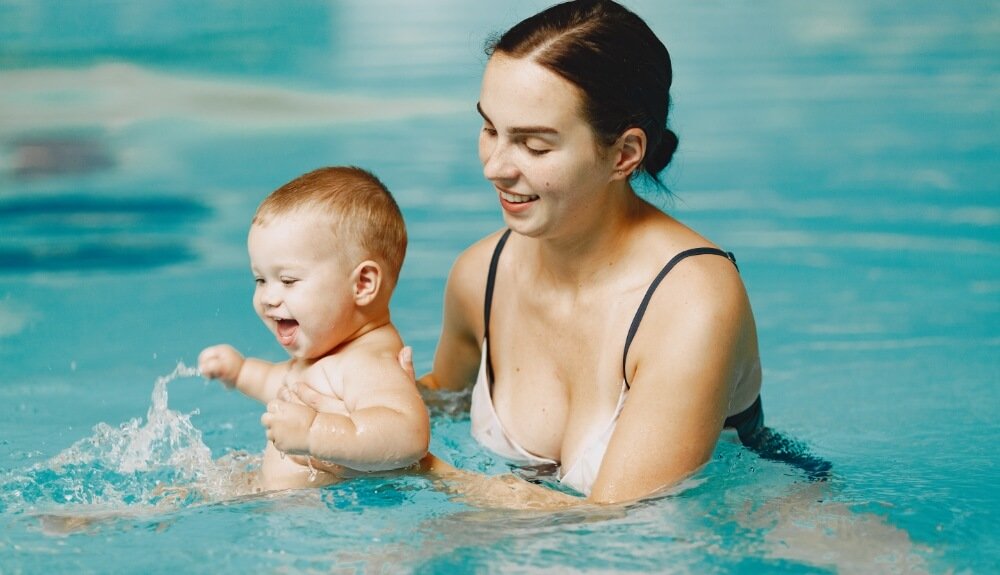
Newborn babies need clean and safe water
Babies need clean, safe water than regular water. Getting started as new parents can be tough because babies’ skin is very delicate and irritating.
Allergic reactions are very easy. For new parents, it may not be an expert and also afraid to clean the baby.
Allergic reactions are very easy. For new parents, it may not be an expert and also afraid to clean the baby
Bathing a child or infant requires extreme caution and nurturing in every process. You afraid of dropping the baby, afraid the navel that hasn’t dried will cause inflammation, afraid that the child will be cold etc.
Are you confident that the water you use in your home is clean and safe for newborns? Have you found one, if not, we would like to recommend parents to try our high-efficiency AFM® glass filter has properties that meet your water quality concern.
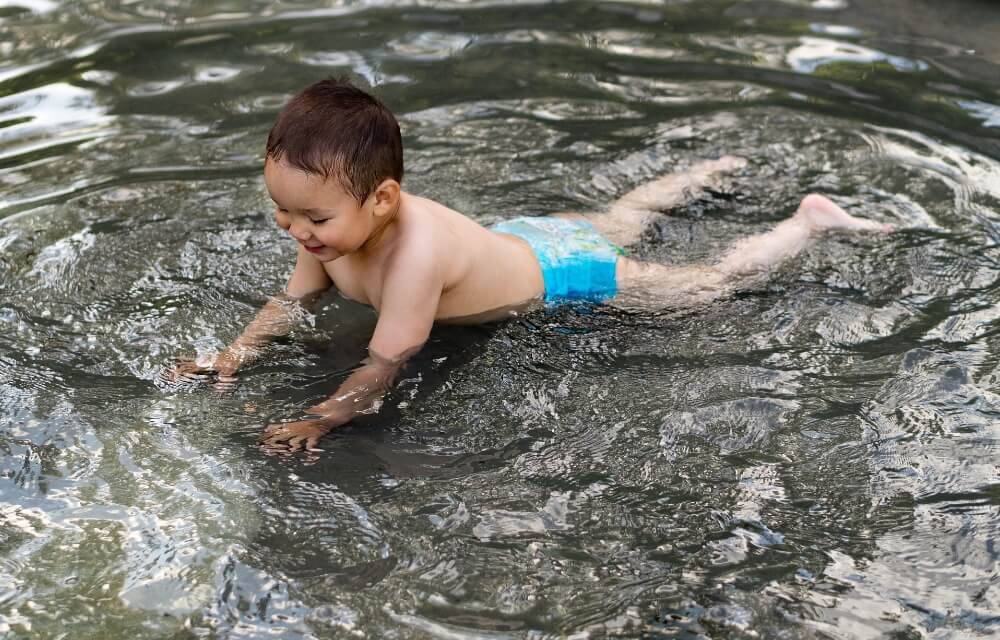
Allergic reactions are very easy. For new parents, it may not be an expert and also afraid to clean the baby
Bathing a child or infant requires extreme caution and nurturing in every process. You afraid of dropping the baby, afraid the navel that hasn’t dried will cause inflammation, afraid that the child will be cold etc.
Are you confident that the water you use in your home is clean and safe for newborns? Have you found one, if not, we would like to recommend parents to try our high-efficiency AFM® glass filter has properties that meet your water quality concern.
Water is an essential part of cleaning your baby and it needs to be kept clean and safe
If the water is not clean, it may be dangerous or cause irritation to children. Therefore, we need to filter the water and use quality water filter to ensure that the water used in our home is cleaner and safer for better children’s health.
Baby’s bathing time is the time that children enjoy the most. It is a very special and happy time for children and parents to create good connection
For better and clean water for your family happiness Choose AFM® Water Glass Purifier.
Allowing the little ones to swim is an alternative activity to help build. Infant development during the first 3-4 months of age
From how many months a baby can start swimming, how many edges of the pool will be good for a fewer children?
Experts have mentioned the benefits that babies will receive But mothers often have questions as to how many months a baby should be able to swim to be good and safe for the baby.
The little one who had been floating in the amniotic fluid in his mother’s stomach for a long time This allows them to learn to float quickly and get used to the water well, and bathing the baby in the bath will make it fun for your child. get exercise and become familiar with the water So start taking your little ones to the pool. Can be done from the age of 3 months. In the first 3-6 months, spend about 15 minutes in the water, but from 6 months to 1 year old, spend about 30 minutes in the water.
Letting the little ones swim in the water stimulates the development of various aspects, including the brain, the body and the nervous system, the emotions of the baby, which is a training for the child to control the coordination of all parts of the muscles. Helps the body and lungs to be strong Reduce your risk of developing asthma as you get older. It also resulted in a higher EQ and IQ, making the baby feel good, happy, and able to adapt to society well.
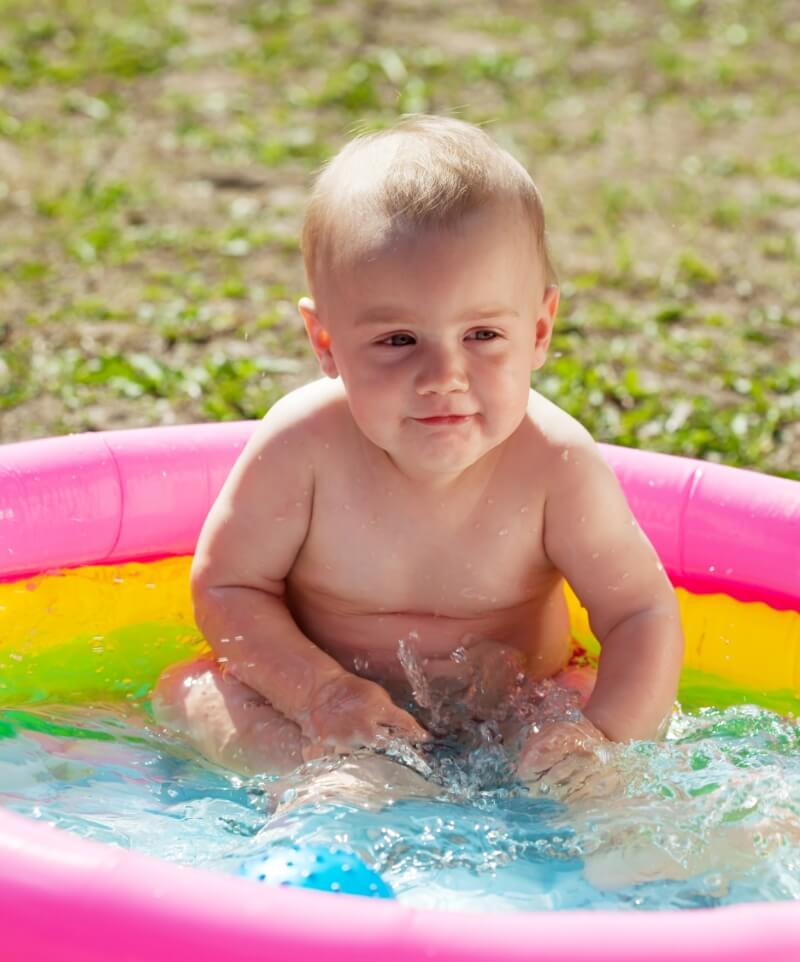
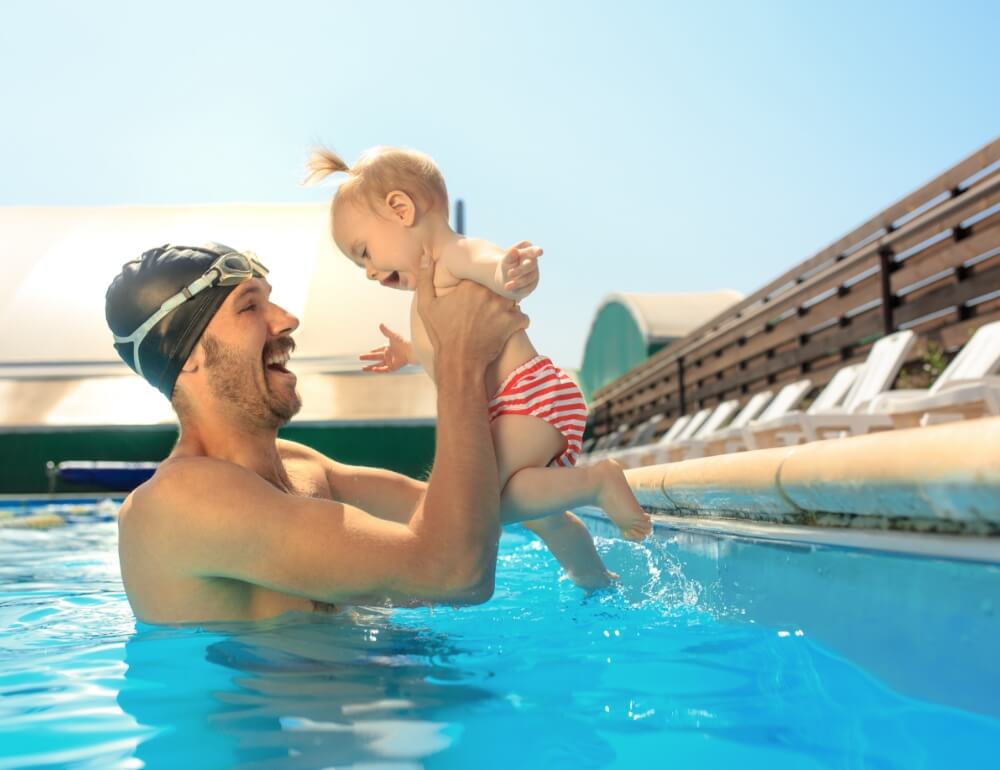
What kind of swimming pool would be suitable for little babies?
Parents should choose the pool as a salt water system or or an OR system, and the water temperature is kept at around 30-35 degrees Celsius if a chlorination system is needed. (which is not recommended Because the skin of a newborn baby is very delicate Chlorine can easily lead to irritation of your baby’s skin.)
Attention: Choosing the wrong pool In addition to the risk of infection of the baby The temperature and pH balance of the pool water can irritate or irritate your baby’s skin. For children under the age of 6 months, sunscreen should not be applied because the baby’s skin may be exposed to too much chemicals. Focus on choosing a pool that uses less chemicals in the pool or a pool with a filtration system and a filter that can absorb toxins. pathogens well
Swimming pool has “urine” mixed with it!
Faculty of Medicine Siriraj Hospital It has been stated that uric acid in human urine is When mixed with chlorine in the swimming pool It produces a new chemical called cyanogen chlorite, which is the same family of chemicals as cyanite. which such substances It is often used in the industry for organic synthesis. military poison gas Benzene derivatives Including as an ingredient in fumigation gas, so diseases that come from pools that are contaminated with urine Bring a variety of diseases for us to consider, besides diarrhea, rashes, but also diseases that many women and men may not know.
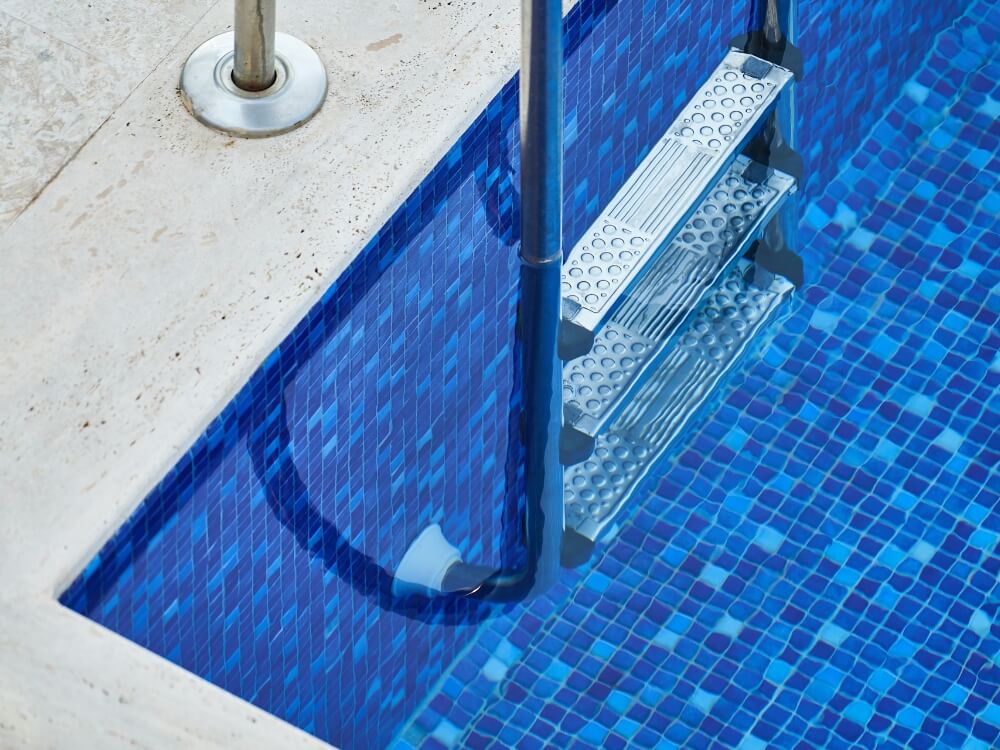
Swimming pool has “urine” mixed with it!
Faculty of Medicine Siriraj Hospital It has been stated that uric acid in human urine is When mixed with chlorine in the swimming pool It produces a new chemical called cyanogen chlorite, which is the same family of chemicals as cyanite. which such substances It is often used in the industry for organic synthesis. military poison gas Benzene derivatives Including as an ingredient in fumigation gas, so diseases that come from pools that are contaminated with urine Bring a variety of diseases for us to consider, besides diarrhea, rashes, but also diseases that many women and men may not know.
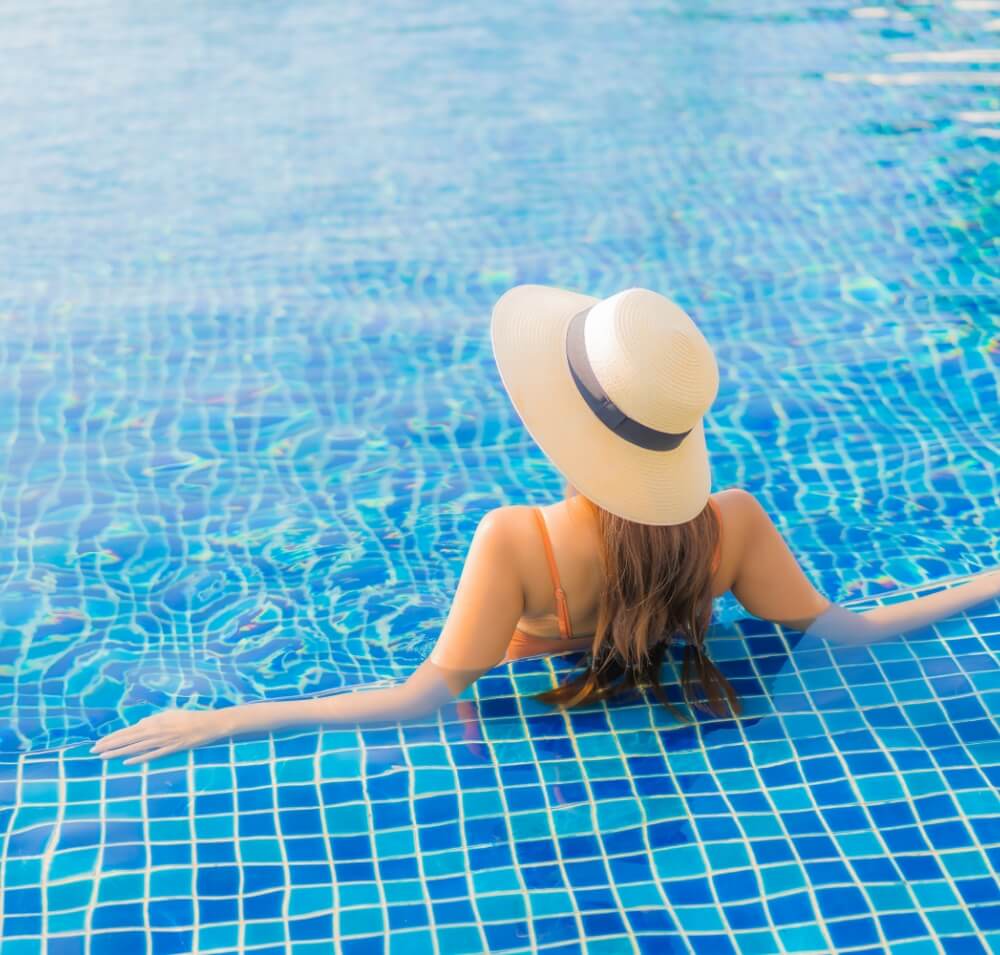
Infections in the vagina from swimming pools
A woman who likes to swim regularly. Did you know that swimming There is also a risk of contracting various diseases, especially genital or vaginal diseases from swimming pools.
Swimming may cause inflammation of the lining of the vagina. which is a symptom found after swimming by having a burning sensation at the vulva In addition, when the urine touches the area. will result in some people having vaginal discharge When examined internally, inflammation of the vaginal mucosa is clearly visible. However, when checking again The cause of the disease could not be found. This is partly caused by an allergy to chlorine in water that is too concentrated.
In addition, diseases that occur in the vulva that have ever been found as a result of swimming in the pool, including vaginal worms and fungal diseases.
As for men, you should be careful, such as gonorrhea, hepatitis (B virus).
